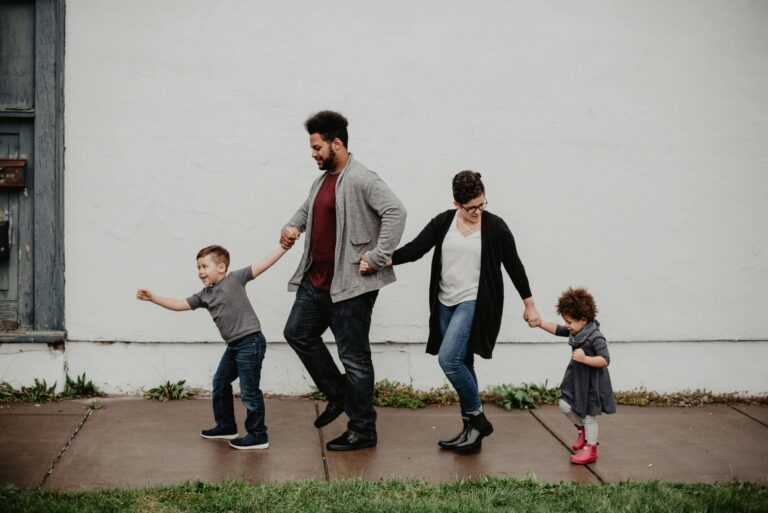Anger is one of the most common emotions we encounter in relationships. Many couples come to therapy feeling frustrated, irritated, or resentful, unsure of how to manage the intensity of their emotions. At Therapy Ties, we view anger not as a problem to eliminate but as a vital signal, a secondary protective emotion that points to deeper feelings like fear, hurt, disappointment, or shame.
Anger in relationships often shows up when one partner feels threatened emotionally, dismissed, or misunderstood. It is a protective response, a way to assert boundaries or communicate that something important is at stake. While anger itself is a feeling, the ways we express or suppress it are learned behaviors. These learned responses may have served us in the past, helping us survive emotional or relational stress, but they may no longer serve the connection we want today.
Understanding anger as a messenger rather than a threat is a core principle in relationship therapy. When we view anger this way, we can attend to the unmet needs it signals, communicate more authentically, and strengthen intimacy rather than react defensively.

Why Anger Shows Up in Relationships
Anger rarely exists in isolation. It is almost always triggered by underlying, primary emotions such as fear, hurt, sadness, disappointment, guilt, or shame. These emotions are often too vulnerable or uncomfortable to express directly, so anger steps in as a shield. It gives us a sense of power when we feel powerless, control when we feel unsafe, and distance when closeness feels threatening.
For example, when someone feels rejected, the pain of not being wanted may be too raw to face, so it transforms into irritation or rage. When we feel afraid of being judged, our instinct might be to get defensive or lash out before anyone can see our fear. In this way, anger becomes a protector, not because it wants to harm but because it wants to keep us safe.
The key to healing our relationship with anger is to look beneath it. Instead of asking, “Why am I angry?” try asking, “What pain is my anger protecting me from?” This shift opens a doorway to understanding, compassion, and emotional freedom.
In relationships, these primary emotions often surface when we are emotionally vulnerable with someone we care about. Anger becomes the loudest expression because it feels safer than exposing more tender emotions. Recognizing these patterns allows us to respond to our partner from awareness rather than reactivity.
Anger as a Signal in Relationship Therapy
Relationship therapy helps couples shift their perspective on anger. Instead of seeing it as a weapon or a reason to withdraw, therapy reframes anger as a guide. It invites both partners to explore what the anger is pointing to: an unmet need, a boundary that has been crossed, or a vulnerability that has been triggered.
When couples learn to approach anger in this way, several things happen:
- Emotional awareness deepens: Partners become attuned not only to their own triggers but also to each other’s primary emotions.
- Communication improves: Expressing anger from a place of curiosity and self-awareness replaces blame or escalation.
- Connection strengthens: Responding to anger with empathy and understanding fosters safety, trust, and intimacy.
Anger becomes less about conflict and more about insight. It signals where care, attention, and honest communication are needed.
Reactivity vs. Choice
One of the challenges in relationships is that anger often triggers automatic, learned reactions. We may yell, withdraw, criticize, or shut down. These reactive patterns are not immutable; they are habits we learned to survive stress, but they can be unlearned.
Relationship therapy helps individuals and couples pause and choose. Self-awareness transforms reactivity into choice. With this choice comes the ability to see every trigger as part of your personal and relational journey. Each moment of anger becomes an opportunity to understand yourself, attend to your needs, and connect more authentically with your partner.
The Role of Boundaries in Anger
Anger often signals that our boundaries have been crossed or that our needs are not being met. Healthy boundaries in relationships are acts of self-respect, not selfishness. They clarify what is emotionally safe, respectful, and nourishing for both partners.
Setting boundaries in the context of anger might look like:
- “I need a few minutes to calm down before we continue this discussion.”
- “I feel overwhelmed right now and need space to process my feelings.”
- “I love you, and I also need time for myself to feel balanced and heard.”
Boundaries teach both partners how to relate in ways that feel safe and respectful. They transform anger from a destructive force into a signal for self-care, clarity, and connection.
Self-Compassion and Anger
Managing anger in relationships begins with self-compassion. Many people believe that being harsh or critical with themselves will help them “control” their anger or become better partners. In reality, self-criticism breeds shame, and shame often fuels the very anger we are trying to escape. It becomes a painful cycle: we get angry, feel ashamed for it, and then grow angry at ourselves for acting in anger.
Self-compassion breaks this cycle. It allows us to honor the anger without being controlled by it. It means recognizing that anger is not the enemy, but a signal pointing to an unmet need, a boundary that has been crossed, or a deeper pain asking for care.
When self-compassion is present, anger transforms from a weapon or a source of guilt into an invitation. It invites us to meet our own needs with understanding, to tend to the wounds that fuel our reactions, and to respond with clarity, presence, and care.

Practical Exercises for Anger in Relationships
Here are some exercises from a relationship therapist that couples and individuals can use to work with anger in a productive, relationship-centered way:
1. Pause and Breathe
When you notice anger rising, take slow, deep breaths. Observe the sensations in your body. This pause allows you to respond rather than react.
2. Identify the Primary Emotion
Ask: “What am I really feeling beneath this anger?” Naming fear, hurt, or shame reduces the intensity of anger and clarifies what you need to address.
3. Attend to the Unmet Need
Reflect: “What do I need right now? Do I need a boundary, support, or to express my feelings?” Meeting the underlying need helps prevent anger from escalating.
4. Communicate Authentically
Use “I” statements to express feelings without blame: “I feel hurt when I am interrupted. I need space to share my thoughts.”
5. Practice Self-Compassion
Remind yourself: “It is okay to feel angry. I am allowed to acknowledge this feeling and attend to myself.”
6. Set Healthy Boundaries
Clearly express limits: “I need a few minutes alone before we continue talking.” Boundaries protect emotional safety and encourage mutual respect.
7. Reflect After the Moment
Journal or discuss: “What triggered my anger? What need was unmet? How did I respond? What can I do differently next time?”
8. Connect With Your Inner Child
Visualize moments from your past where anger or frustration first arose. Ask: “What did I need then? How can I give that to myself now?” Using a childhood photo can strengthen the connection.
9. Physical Release
Anger is energy. Move your body intentionally through walking, yoga, or mindful movement to release tension safely.
10. Mindfulness and Observation
Label the emotion: “This is anger. Beneath it, I feel hurt.” Observing without judgment reduces reactive behavior.
Transforming Anger into Connection
When couples learn to see anger as a guide, not a threat, relationships change profoundly. Anger stops being a source of distance or conflict and becomes an opportunity to:
- Attend to unmet needs
- Communicate honestly and clearly
- Rebuild trust and emotional safety
- Deepen intimacy, empathy, and understanding
With practice, couples discover that anger can lead to greater intimacy and connection. It signals where care is required and invites both partners to step into vulnerability, clarity, and authentic presence.
Turning Anger Into Insight and Intimacy
Anger in relationships is often seen as a problem, but it can actually be a doorway to deeper understanding and connection. When we get angry, it’s usually a signal that a primary, more vulnerable emotion such as fear, hurt, sadness, or frustration has been triggered. Anger itself is not the enemy; what truly matters is how we respond to it.
By noticing anger as a signal, we can pause and turn inward. We can ask ourselves, What am I really feeling? What need of mine is unmet? Attending to these deeper feelings allows us to respond rather than react. It opens space for setting boundaries, expressing ourselves authentically, and communicating our needs with clarity.
Turning Conflict Into Connection Through Compassionate Awareness
In relationship therapy at Therapy Ties, this approach transforms conflict into growth. Anger stops being a source of blame or distance and becomes an invitation to understand ourselves and our partners more fully. When we practice listening to the message behind our anger and respond with empathy and honesty, we create intimacy instead of tension.
Through this lens, anger becomes a tool, not to control or punish, but to build connection, clarity, and trust. It reminds us that even in moments of conflict, relationships can grow stronger when we choose understanding over reactivity and insight over defensiveness.

Transform Anger Into Understanding and Connection With Relationship Therapy in Los Angeles, CA
If anger is creating distance or tension in your relationship, it may be time to reach out for support through relationship therapy in Los Angeles, CA. You deserve a space where you can explore what’s beneath the anger, learn healthier ways to communicate, and rebuild emotional safety. At Therapy Ties, compassionate guidance can help you turn moments of conflict into opportunities for clarity, connection, and healing. Follow these three simple steps to get started:
- Schedule a free 15-minute consultation to explore how relationship therapy in Los Angeles, CA can help you understand the anger showing up in your relationship.
- Begin meeting with a supportive relationship therapist who will help you uncover the deeper emotions and unmet needs beneath your anger.
- Start transforming reactive patterns into clarity, compassion, and connection—healing your relationship from the inside out.
Additional Services Offered at Therapy Ties in Los Angeles, CA
At Therapy Ties, I understand that meaningful change in your relationship starts with understanding your own emotional world—especially the anger, hurt, or fear that so often lies beneath conflict. I help clients build the insight, compassion, and communication skills needed to move from reactivity to connection, creating space for healthier, more authentic relationships. In addition to relationship therapy in Los Angeles, CA, I offerindividual therapy, couples therapy, and anger management services to support those seeking emotional clarity, growth, and lasting change. Therapy Ties welcomes clients from Woodland Hills, West Hills, Agoura Hills, Encino, Tarzana, Sherman Oaks, North Hollywood, and across the greater Valley, offering a warm and steady environment to break old patterns and strengthen the bonds that matter most.
About The Author
Hi, I’m Liron—a Licensed Marriage and Family Therapist at Therapy Ties in Woodland Hills. I work with individuals and couples who want to understand themselves more deeply so they can create relationships rooted in authenticity, emotional safety, and mutual respect. My work blends Humanistic principles with Emotion-Focused Therapy, Gestalt, and Family Systems, offering a grounded and compassionate space for growth.
Originally from Israel, I’m fluent in Hebrew and English and hold a Master’s degree in Marriage and Family Therapy from Phillips Graduate Institute, along with a BA in Psychology from UCLA. As a CAMS III certified anger management specialist, I help clients navigate strong emotions, unravel long-standing patterns, and develop the confidence to show up more fully in their relationships.
If you’re ready to strengthen your relationship with yourself and shift the way you connect with the people you love, I’d be honored to support you.












